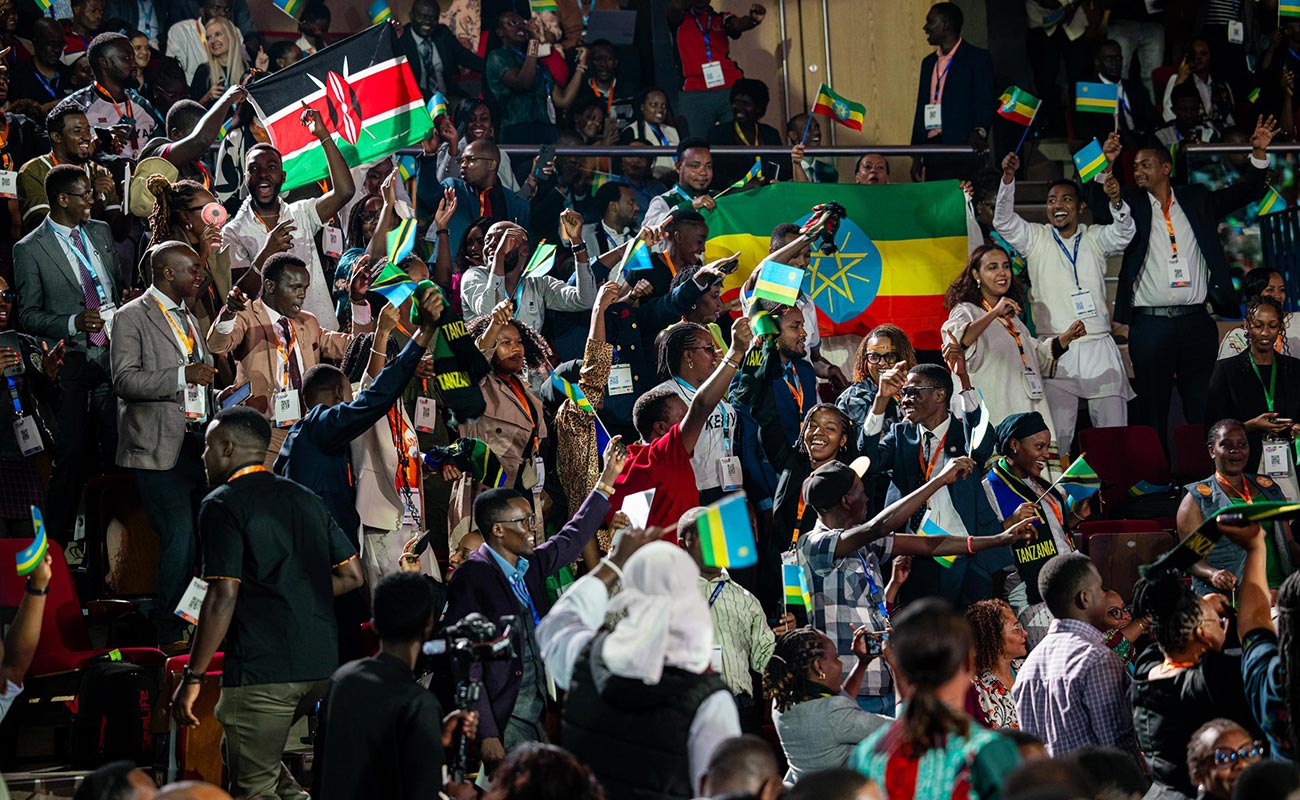
By Francis Assam
In the last two years, Africa has witnessed a powerful wave of youth-led activism, signalling a new era of hope and transformation. From rallying against oppressive policies to unseating long entrenched governments, the youth have taken centre stage, reclaiming their role as catalysts for change. Some compare this momentum to the fervour of the anti-colonial movements, as today’s generation demands transparency and accountability. With the youngest population in the world, Africa’s youth are finally embracing their worth and the future is being shaped by their voices.
From Nigeria’s End Bad Governance protests to Kenya’s Finance Bill demonstrations, Africa has been swept by a wave of accountability-seeking movements, frequently accompanied by violence. Mozambique has now joined this trend, enduring days of violent protests linked to accusations of electoral fraud by the ruling Frente de Libertaçao de Mocambique (Frelimo). The dispute between Frelimo’s chosen candidate, Daniel Chapo, and Venâncio Mondlane, a pastor and former radio personality, is at the heart of the turmoil. However, underlying frustrations with governance and socio-economic challenges have further fuelled the public’s anger.
THE STATE OF MOZAMBIQUE BEFORE THE ELECTION
Mozambique is one of the least developed countries in the world. According to the International Crisis Group, the country owes a foreign debt exceeding $2 billion, a consequence of a scandal involving a former finance minister. This financial burden has plunged the nation into severe economic hardship, with 62% of the population living in extreme poverty, as highlighted by the Multidimensional Poverty Index.
In parallel, Mozambique’s gas-rich northern province of Cabo Delgado has been plagued by terrorist attacks from Islamic State-affiliated insurgent groups since October 2017. These ongoing conflicts have caused widespread devastation, including significant loss of lives, destruction of livelihoods, and severe damage to physical infrastructure. Over the seven years of unrest, there have been 5,785 fatalities, and more than half a million people have been displaced.
The conflict has also taken a toll on Mozambique’s economy, stalling progress on critical Liquefied Natural Gas (LNG) investments worth $60 billion by Total Energies, Eni, and Exxon in Cabo Delgado. This economic blow was compounded by the withdrawal of Southern African Development Community (SADC) Mission troops in July 2024, as their mandate expired, leading to a surge in hostilities.
Politically, the Frelimo party has maintained its grip on power since Mozambique’s independence from Portugal in 1975. Even after adopting a multi-party democratic system in 1992, the party has consistently won major elections, including a landslide victory in 2019 and securing 64 of 65 municipalities in the 2023 municipal elections.
However, Frelimo’s electoral dominance has been marred by allegations of fraud, not only at the polls but also in the judicial system. Amid growing public outcry over these allegations and the party’s failure to address the country’s economic and security crises, its popularity has significantly declined among the Mozambican population.
THE ELECTIONS AND DRIVERS OF PROTEST
The October 9, 2024, general elections in Mozambique triggered significant unrest and widespread protests nationwide. The elections were primarily contested between the ruling party, Frelimo who fielded Daniel Chapo as its candidate, and independent candidate Venancio Mondlane. Frelimo ‘s Daniel Chapo was declared the winner, reportedly securing 71% of the vote, while Mondlane received 20%. However, the results have been widely questioned by observers and citizens due to allegations of electoral irregularities.
The elections were marred by accusations of fraud, including ballot stuffing and police intimidation, which contributed to a historically low voter turnout. Civil society organizations and international observers reported significant discrepancies in the process. This has led many citizens to reject the legitimacy of the election results, fuelling a climate of discontent and frustration toward the ruling party. This stood a key driver of the protest.
The event that ignited public outrage and drove masses to take to the streets in protest was the assassination of Mondlane’s lawyer, Elvino Dias, and Paulo Guambe, a parliamentary candidate. The two men were traveling together in a car in Maputo while Dias was preparing a legal challenge to the election results.
THE PROTESTS AND ITS CASUALTIES
The protests in Mozambique following the disputed October 2024 elections escalated into significant civil unrest, marked by violent confrontations between demonstrators and security forces.
Since the onset of the protests, casualties have mounted alarmingly. Reports indicate that at least 30 individuals have been killed, alongside hundreds injured during violent clashes with police. The police have responded with aggressive tactics, including live ammunition, tear gas, and unlawful detentions of protestors. Such heavy-handed measures by law enforcement have drawn international condemnation from the United Nations, the European Union (EU), and most recent SADC amid human rights violations.
The protests have particularly intensified following the assassinations of key opposition figures, which have fuelled public outrage and demands for justice. Security forces’ lethal responses to peaceful gatherings have further intensified tensions, contributing to a growing sense of mistrust and frustration among the masses. As the situation continues to unfold, civil society organizations estimate that over 2,700 individuals have been detained unlawfully during the clashes.
YOUTH ACTIVISM AND LEADERSHIP SHAPING AFRICA’S FUTURE
The year 2024 has laid bare Africa’s trajectory, with youth activism at the forefront of this transformation. Across the continent, we have witnessed democracy in action in nations such as Senegal, Botswana, and others, reaffirming that power ultimately resides with the people.
Africa is beginning to understand its true potential and importance to the global community. With its vast resources, the continent holds the keys to significant development. However, achieving this requires the right kind of leadership, one that prioritizes the welfare of its citizens. Mozambique’s recent unrest reflects the grievances shared by many African states, emphasizing the need for accountability and transparency.
The masses must remain resolute in holding their leaders accountable, no matter the cost. With persistence and collective action, victory for Africa is within reach, and the continent stands poised to shape its future on its own terms.
